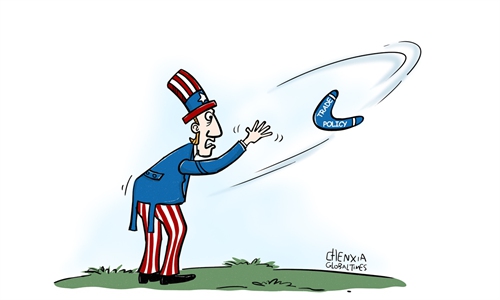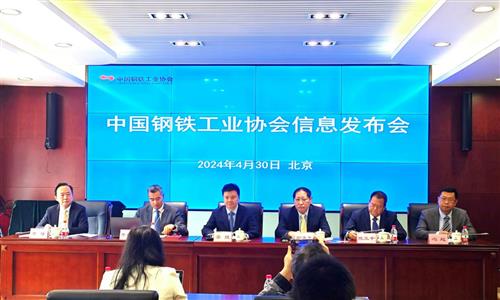Potential tariffs on Chinese steel products 'not conducive to India's development': analysts

A worker in Hefei, East China's Anhui Province, gives up the Dragon Boat Festival holidays to speed up the production of steel in an economic demonstration park on June 10, 2024. Photo: VCG
As India has a large demand for steel products, given the fast-developments in infrastructure and other fields, the potential imposition of tariffs on Chinese steel products is unfavorable to India's overall economic development, analysts said.
India's steel and trade ministries are in talks over rising imports, particularly Chinese goods, Reuters reported on Monday, citing a government source with direct knowledge of the matter, amid persistent calls from top producers for higher tariffs.
"The [Indian] steel ministry has apprised the commerce ministry on rising imports and industry has sought a probe. India is monitoring cheap Chinese imports, as China continues to be top exporter of steel to India in recent months," the source said, declining to be identified as discussions are not public, per the Reuters report.
At present, the demand for steel in India's infrastructure is large, and the imposition of tariffs on Chinese steel products will be unfavorable to the economic development of India as it will push up the price of steel, Zhao Gancheng, a research fellow from the Shanghai Institute for International Studies, told the Global Times on Monday.
"Tariffs would have to be raised to make it more cost-effective to buy Indian steel products. So, if tariffs were to be imposed, the rate would not be small. It means that if tariffs were imposed on imported Chinese steel imports, then steel product prices would rise in India, which is not conducive to its industries that have a huge demand for steel," Zhao said.
According to Reuters, India's steel mills, alarmed by a sharp rise in imports, have repeatedly called for government interventions and higher import taxes. However, India's federal Ministry of Steel has resisted such calls, citing strong local demand.
India has a large steel demand and its own capacity is insufficient, so it is likely to expand imports to meet the current demand, Lou Chunhao, executive director of the Institute of South Asian Studies at the China Institutes of Contemporary International Relations, told the Global Times on Monday.
The Indian Steel Association anticipates that steel demand will reach 128.90 million tons in the 2023-24 period, and consumption is expected to reach 206 million tons by 2030.
India's steel demand is projected to grow between 5-7 percent over the next 12-18 months, driven by faster economic and population growth, increased industrialization and urbanization and supportive government policies, according to a report by Moody's Ratings.
"The difference in interests between India's steel business associations and the overall economic development needs of the Indian government could lead to a trade game. India may impose tariffs on specific steel products imported from China, and these will need further fine-tuning," Lou said.
Zhao also noted that it is the Indian steel industry that is demanding tariffs, yet this is not consistent with India's economic development needs, therefore the Indian government will take all factors into account before making a decision.
"India has a plan to increase steel production, but it needs time. Its current production cannot meet its increasing demands," Zhao said.
India aims to triple its domestic steel production capacity to 500 million tons per year by 2047, the Economic Times reported in April.



